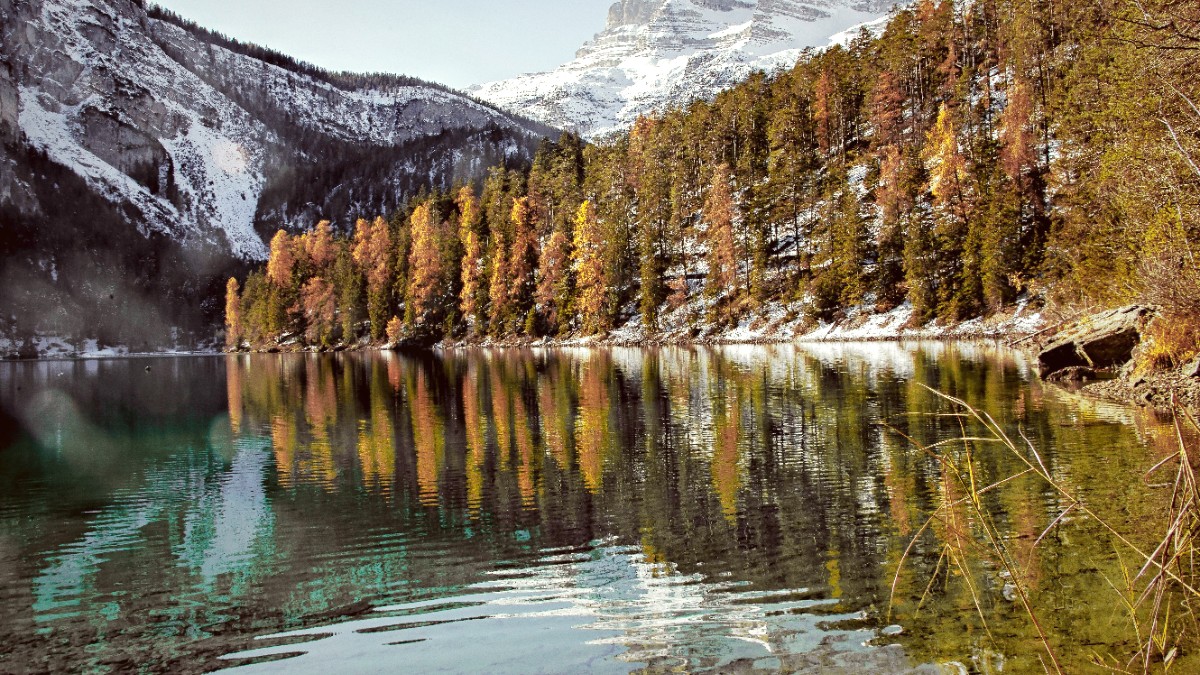
Trentino Alto Adige, Italy
Spring (April-May) and Autumn (September-October) offer mild temperatures, ideal for city exploration and hiking. These shoulder seasons have fewer crowds and lower prices for flights and accommodation. The scenery is beautiful, with blooming landscapes in spring and stunning fall foliage in autumn.
Summer (June-August) brings warm to hot conditions, perfect for outdoor activities. Winter (November-March) is cold with common snowfall, especially in higher elevations. This season is good for winter sports.
Summer thunderstorms are usually brief and cool down the air. Plan indoor activities or seek shelter during these periods.
Winter snowfall, especially outside the immediate city center, impacts road conditions. If driving in winter, vehicles need snow tires or chains, as legally required in some areas.
June-August (Summer), Dec-Jan (Winter Sports/Markets)
Warm weather for activities; snow for skiing; festive Christmas markets.
Higher prices for accommodations and flights; larger crowds.
April-May, September-October
Comfortable temperatures; fewer crowds; lower prices; beautiful scenery.
Some mountain facilities may be closed in transitional periods.
November, February-March (excluding holidays)
Lowest prices; very few tourists; quieter slopes for winter sports.
Cold weather; reduced hours for some attractions; fewer daylight hours.
Italy is part of the Schengen Area, which simplifies travel within many European countries. The Schengen Visa (Short Stay, Type C) applies for tourism or business visits up to 90 days within any 180-day period. Citizens from many countries do not need a visa for stays up to 90 days.
ETIAS (European Travel Information and Authorization System) will be implemented in mid-2025. Visa-exempt travelers will need online authorization prior to travel. Required documents include a passport valid for at least three months beyond your intended departure, proof of accommodation, proof of sufficient funds, and return or onward ticket.
Check if your nationality requires a Schengen Visa. Many countries are visa-exempt.
Three months beyond departure, issued within 10 years, two blank pages.
New pre-travel authorization for visa-exempt travelers, expected mid-2025. You can find out more on sites like IVisa or VisaHQ.
Required for Schengen visa applicants, recommended for all. Cover medical emergencies and repatriation.
Not for general tourism. Some specific outdoor activities may need permits. Health-related entry has no specific requirements.
Prices vary based on your travel style, but understanding typical costs helps with planning.
The official currency is the Euro (€, EUR). ATMs are widely available for cash withdrawals. Credit and debit cards (Visa, Mastercard most common) are accepted in most hotels, restaurants, and shops. Inform your bank of your travel plans to prevent card issues.
These are general estimates. Your actual spending may vary.
Estimated costs for getting around and seeing sights.
Italy has good healthcare infrastructure, and Trento is a generally safe city.
No specific vaccinations for entry. Keep routine vaccinations (MMR, DTP, Polio) up-to-date. Hepatitis A and B, and Tetanus are common recommendations.
Use High SPF sunscreen and stay hydrated, especially during summer or at high altitudes. Public fountains have potable water.
Check for ticks if hiking in wooded areas. Use Insect repellent.
Italy has a public healthcare system (SSN).
EU citizens use their European Health Insurance Card (EHIC). Non-EU citizens typically pay for services; travel insurance is highly recommended.
The main hospital is Ospedale Santa Chiara di Trento. Pharmacies (Farmacia, green cross sign) can help with minor ailments.
Tap water is safe. Food hygiene standards are high.
Trento is a very safe city with low crime statistics.
Pickpocketing can occur in crowded areas, less common than larger Italian cities. Keep valuables secure.
City center is generally safe at night. Be aware in less-trafficked areas.
Awareness of potential natural occurrences.
Comprehensive travel insurance is recommended.
Covers medical emergencies, evacuation, trip cancellation, lost luggage. Compare options like World Nomads or SafetyWing. Ensure coverage for activities like hiking or skiing.
Call 112 for police, ambulance, or fire services. This is the main number for any emergency. State your location clearly and the nature of the emergency.
Ambulance: 118. Police (Carabinieri): 112. Fire Department: 115. Roadside Assistance (ACI): 803.116. If you don't speak Italian, state "Parlo inglese" for an English-speaking operator.